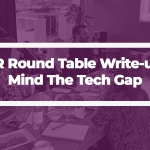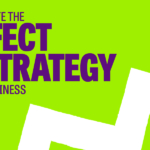When someone mentions “HR Business Partner,” what comes to mind? If you’re picturing someone who knows every policy inside out, supports with the tricky employee relations cases, and can navigate complex grievance procedures with their eyes closed, you’re not wrong. But you’re also not seeing the full picture anymore.
The role of the HR Business Partner has been quietly undergoing one of the most significant transformations in modern business. We’re witnessing a shift from being the go-to HR expert at the table to becoming a genuine strategic business partner who happens to have deep people expertise. And frankly, it’s about time.
The Numbers Don’t Lie: There’s a Gap to Bridge
Here’s a reality check that might sting a little: Gartner research shows that 70% of CEOs expect their CHRO to be a key player in enterprise strategy, but only 55% say their CHRO meets this expectation. That’s a significant gap between what business leaders want from HR and what they’re actually getting.
But before we start pointing fingers, let’s acknowledge something important – this isn’t about capability. It’s about the fact that HRBPs are balancing the evolution of the role towards being a more strategic partner, with the never-declining pull into all the day-to-day challenges a business needs their support with. HRBPs are expected to be on hand whenever needed and to switch gears into whatever approach is needed for whatever situation they’re being called to. Research shows that they spend nearly half of their time on transactional activities and less than 5% of their time working with leaders on people-related strategies. No wonder there’s a disconnect.
The Perfect Storm: What’s Driving This Change?
Several significant factors are coming together to accelerate this transformation, and they’re impossible to ignore:-
The Workforce Has Never Been More Complex
Today’s workplace brings together five generations of employees, each with different expectations, communication styles, and career aspirations. Add to this the explosion of flexible working arrangements, hybrid models, and remote work, and you have a fundamentally different people landscape than even five years ago. There’s also a much greater awareness and recognition of mental health, wellbeing, neurodiversity, and other factors that impact how people work best. Traditional one-size-fits-all policies simply don’t work anymore, and leaders find themselves on less certain ground when managing this complexity. This requires HRBPs who can navigate nuance, understand diverse needs, and help design people strategies that work for everyone.
The World is Moving at an Unprecedented Pace
We’re operating in an era of constant change and increasing uncertainty that feels unlike anything we’ve experienced. Transformation isn’t a project anymore – it’s a way of life. Operating models that previously worked perfectly well can become ineffective in months rather than years. Global events, from pandemics to economic shifts to technological breakthroughs, require organisations to pivot quickly and often. This means HRBPs must be agile change agents who can help their organisations respond rapidly to unexpected challenges while keeping their people engaged and supported through constant transition.
The Employee Experience Revolution
HR functions are shifting from supporting what employees need at work to supporting what employees experience at work. This isn’t just about providing services anymore; it’s about designing experiences that enable organisations to get, keep, and grow brilliant people and will allow them to contribute their best work.
Data is the New Superpower
HRBPs will increasingly need to use data effectively and be fluent in HR technology and information systems to analyse and tell stories with data. Gone are the days when gut feeling and anecdotal evidence were enough. Today’s HRBPs need to speak the language of business metrics and predictive analytics.
The Challenge: Breaking Free from the Firefighter Role
Let’s be honest about something that many HRBPs will recognise: business needs (and often their strengths and preferences) have sometimes led them to serve as firefighters rather than strategic thinkers and consultative partners. It’s a classic catch-22. You become good at solving problems, so people keep bringing you problems to solve. Before you know it, you’re spending your days managing crises instead of preventing them through strategic planning.
Sometimes, this happens because HRBPs involve themselves in operational work to gain credibility and trust. Other times, it’s because the leaders feel they need the security of having their HR partner close by when dealing with tricky situations. And sometimes, it’s because solving problems is a comfort zone.
Making space for more strategic work is not a small ask—it’s a fundamental shift in how the role operates.
The Future is Already Here: What HRBPs Need to Master
So what does this new strategic HRBP look like? Based on current research and emerging trends, here are the key capabilities that are becoming non-negotiable:
1. Business Acumen as a Foundation
HRBPs need to have an excellent understanding of the organisation, its strategy, and customers and a very good understanding of the organisation’s people challenges. You can’t be a strategic partner if you don’t understand the business you’re partnering with.
2. Data Fluency and Analytical Thinking
Analytical skills and critical thinking are necessary so the HR Business Partner can take clues from analysing business and market trends. This isn’t about becoming a data scientist but about being comfortable with metrics, trends, and using insights to inform decisions.
3. Strategic Advisory Skills
HRBPs need to act as strategic advisors to senior leadership, providing insights and recommendations on various HR and business issues in the context of the business’s operating landscape. This means moving to a conversation that doesn’t just offer and advise on the people perspective but articulates it in a way that is grounded in the business strategy, objectives, and challenges.”
4. Change Management and Innovation
One of the more dynamic challenges for strategic HR business partners is fostering innovation within the organisation. In today’s rapidly changing business environment, HRBPs need to be comfortable with ambiguity and skilled at helping organisations navigate transformation into areas and ways of working for which there may not yet be an HR policy.
5. Technology Savviness
In today’s digital age, a key challenge for human resource strategic partners is leveraging the latest HR technology, tools, and methods. This includes everything from HR information systems to artificial intelligence applications that can enhance people strategies.
Download our whitepaper on Harnessing Your HR Superpowers here.
The Reality Check: It’s Not Just About Skills
Here’s where it gets interesting – and challenging. The skills that made HRBPs successful in the past are not what will make them successful in the future. This isn’t about adding new skills on top of existing ones; it’s about fundamentally rethinking the role.
What This Means for Current and Aspiring HRBPs
If you’re currently in an HRBP role or aspiring to be one, this transformation presents both exciting opportunities and real challenges:-
Embrace the Learning Mindset
HRBPs must learn and develop different skills to meet demands and help organisations succeed. This is a career-long journey, not a one-time upskilling exercise.
Build Your Business Credibility
Start having conversations about business strategy, not just HR strategy. Understand your organisation’s competitive landscape, financial pressures, and growth opportunities. When you can speak the language of business, you earn your seat at the strategic table.
Develop Your Influence Skills
Strategic HR partners often face the challenge of influencing and persuading senior leadership to adopt and support HR initiatives. This requires a different skill set than traditional HR work – you must become comfortable with ambiguity, skilled at building business cases, and confident in challenging conventional thinking.
Get Comfortable with Technology
You don’t need to become a tech expert, but you do need to understand how technology can enhance your impact. This includes everything from people analytics platforms to AI-powered recruitment tools.
The Bottom Line: A Role Worth Transforming For
The evolution of the HRBP role isn’t just about keeping up with trends – it’s about unlocking the true potential of people strategy to drive business success. A strategic Human Resources Business Partner aligns HR initiatives with business objectives to drive organisational success.
When HRBPs successfully make this transition, the impact is significant. They become trusted advisors who can spot talent risks before they become crises, design people strategies that directly support business growth, and create employee experiences that drive engagement and retention.
Yes, it’s challenging, and yes, it requires letting go of some traditional comfort zones. But for those willing to make the journey, the opportunity to shape the future of work and have a genuine strategic impact on business success has never been greater.
The question isn’t whether the HRBP role will continue evolving; it’s whether you’re ready to grow. The organisations that invest in developing these future-ready HR Business Partners will have a significant competitive advantage. The ones that don’t? Well, they’ll be left wondering why their people strategies aren’t delivering the desired results.Ready to embrace the strategic side of HR and transform your impact? The future of the HRBP role is here, and it’s more exciting than ever. Contact us to explore what this means for your HRBP team.



